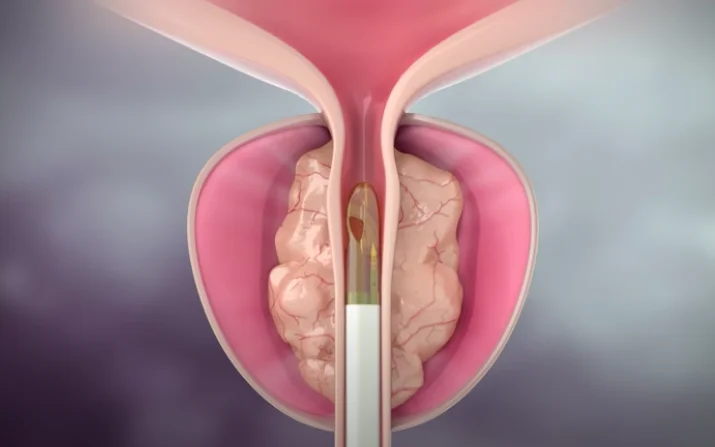
Everything You Need to Know About Vasectomy Side Effects

It is a very effective form of male contraception but is not 100% reliable. Approximately 1–2 out of every 1,000 women still get pregnant in the year following their partner’s vasectomy. Although the procedure is safe, some people may experience pain and other issues afterward.
In this article, we look at the vasectomy in more detail, including common side effects, risks and complications, recovery, and when to see a doctor.
Short-term side effects
It is advisable to abstain from sex for at least a week following a vasectomy.
Below, are some common side effects of a vasectomy procedure:
1. Pain
Immediately following a vasectomy, one may feel tenderness, pain, or pressure in the scrotum or pelvic area. Because of this, one should abstain from sex until the pain goes away, which is usually after about a week.
2. Infection
Some develop an infection at the site of the surgical procedure. The infection can cause intense pain and swelling. Doctors can prescribe antibiotics to treat the symptoms of a bacterial infection.
3. Bleeding
Excessive bleeding during or after surgery can increase pain and may make additional treatment necessary.
4. Pregnancy
It usually takes about 3 months for the semen to be completely free of sperm. As a result, it is still possible for a woman to get pregnant immediately after her partner has a vasectomy.
5. Swelling
Swelling and irritation in the scrotum are common. In some cases, the scrotum may look bruised or discolored.
Most long-term consequences of a vasectomy are positive. Some people report improvements in their sex life, which may be due in part to decreased anxiety about unintentionally getting a partner pregnant.
However, there are potential risks following the procedure, including:
1. Recanalization
Recanalization happens when the vas deferens grow back to create a new connection, causing the vasectomy to reverse itself. The sperm are then able to get back into the semen, meaning that one becomes fertile again.
2. Failed Vasectomy
Sometimes, a vasectomy may fail. In this case, one may need to repeat the surgery or find another birth control option.
3. Regret and Uncertainty
Some may regret having a vasectomy and feel uncertain about whether they might still want children, particularly if they start a new relationship. Vasectomies are usually reversible, but the likelihood of success depends on the type of vasectomy and the skill of the reversal surgeon, among other factors.
4. Cancer
The risk of a person getting cancer after a vasectomy is very small. A 2019 study that followed more than 2.1 million Danish men for 38 years and found a small but statistically significant increase in prostate cancer among men who had vasectomies.
5. Decreased sexual function
Some worry that they will have weaker or less pleasurable orgasms following a vasectomy. However, a vasectomy does not affect sexual function unless one has an injury during the procedure or develops postvasectomy pain syndrome.
Complications
Some people experience serious complications after a vasectomy, but it is rare.
Below, are possible complications:
1. Infection and Bleeding
Infection and bleeding following the procedure are usually treatable, although in rare cases, they may prove dangerous or even fatal. A severe untreated infection or an antibiotic-resistant infection can spread to other areas of the body. Likewise, excessive bleeding may necessitate a blood transfusion or even threaten a person’s life. During the procedure, a surgeon may accidentally damage the testicular artery. This injury can cause bleeding in, or damage to, the testicles, as well as short- or long-term pain.
2. Postvasectomy pain syndrome
A more common complication is post-vasectomy pain syndrome, which causes a person to have long-term pain in the scrotum. The area may ache or be very sensitive. Post-vasectomy pain syndrome can affect sexual function and orgasm.
Although some treatments may lessen the pain, no specific treatment is totally effective, and some people live with long-term testicular pain. According to American Urological Association guidelines, 1–2% of men who have a vasectomy develop chronic pain.
3. Damage to Nerves and Sexual Function
Uncomplicated vasectomies do not cause impotence. However, both damage to nerves in the groin and postvasectomy pain may affect sexual function.
Recovery
Most take about a week to recover from a vasectomy.
The following self-care tips may help with pain:
- Wearing snug-fitting underwear, such as briefs, to reduce movement and irritation
- Applying an ice pack to the affected area to reduce pain and swelling
- Taking pain relievers, such as acetaminophen or ibuprofen
- Avoid having sex in the days following the procedure
If sex is still painful after a week, you should wait until the pain reduces. When there are surgical complications, such as infection or bleeding, recovery may take longer. You should follow the doctor’s recommendations for recovery. If a doctor prescribes antibiotics, you should make sure that they finish the full course of treatment even if symptoms improve.
What to Expect After the Procedure
You may feel groggy after the procedure if it took place under general anesthesia. It will be unsafe to drive, so one should make alternative arrangements to get home.
If the medical team uses a local anesthetic instead, there will be no grogginess. However, the initial numbing injection may hurt or pinch, and one may notice pain and swelling that gets worse over several hours. The pain usually lasts a few days to a week. Most people find that home treatments effectively manage the pain.
There is still a risk of pregnancy until a doctor confirms that there are no sperm in the semen. People wishing to avoid pregnancy should use birth control until then. A few months after the procedure, a doctor will test the patient’s semen for the presence of sperm. This test is the best way to confirm the success of the vasectomy.
When to See a Doctor
Contact a doctor if you are experiencing:
- Fever above 100°F
- Sudden swelling of the scrotum, which becomes very tender
- Pus coming out of the wound
- Unbearable pain that does not respond to medication
- Pain that lasts longer than a week
- Excessive bleeding
- Pain that comes back after weeks or months
In Summary
Most people who have a vasectomy return to work and their usual activities within a few days and experience no serious complications. A vasectomy is generally very safe, and it is much safer than permanent sterilization procedures for females. However, a person considering a vasectomy should discuss the risks with their doctor. In particular, they should ask whether their health history makes them more vulnerable to any specific complications.
If you feel you are in need of a urologist in South Florida to aid in your decision and actual vasectomy procedure, this article highlighted, then contact Z Urology for a group that is dedicated to delivering world-class expertise in urology, along with an unwavering commitment to their patients. The three locations to choose from are located in Fort Lauderdale, Coral Springs, and Pompano Beach.
You can go to the website directly and set up an appointment or you can call 954-714-8200. Either way, you contact, you will be setting up to see the leading urologist office in all of South Florida. With an extremely talented and professional staff of doctors and more, you are in truly good hands with the doctors and nurses at Z Urology. Z Urology is your leader in urological care. Go ahead and call now!



Recent Comments